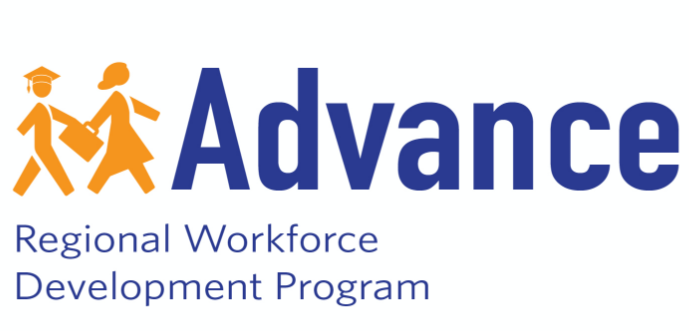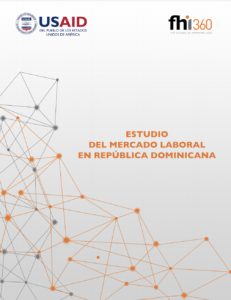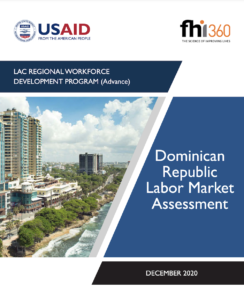Priority Economic Sectors
- Premium Food Processing
- Light Manufacturing
- Orange Economy (tourism, creative industries, and information and communications technology- ICT)
- Transports and Logistics
- Health
Skills Needed
- Social Emotional: time management, adaptability teamwork & other interpersonal skills
- Cognitive: high-level thinking, decision-making, analytical thinking
- Technical: entrepreneurship, e-commerce & business and telecommunications, English language
Country Context

The Dominican Republic has experienced high economic growth in recent years, performing well above the average of Latin American and Caribbean countries in the last decade. Advance’s Labor Market Assessment (LMA) found promising pre-COVID tendencies towards higher economic and export growth, decreases in poverty rates, and slight increase in levels of formal employment and education attainment. In particular, a very high proportion of secondary graduates 60%, transition to some form of higher education.
However, despite this overall economic growth and broader access to higher education, current open unemployment rates for youth (15-24 years old) are higher than in previous years revealing a gap in the education system and a need to align tertiary education with workforce needs. Young women in the 15-24 age group are two times more likely to be unemployed, with rates at 11 percent for young males and 22 percent for young females. To better understand this gap, the Program conducted a study to identify barriers to access and completion of technical education. The Program identified that the lack of economic means to pay for tuition and related academic expenses is the main limitation for young people to enroll in technical education. Another important limitation is the lack of vocational orientation offered at secondary schools and of available information on career offerings and job opportunities that young people can pursue. In addition to these barriers, the COVID-19 pandemic and its resulting economic fallout has worsened the employment and economic growth situation.
In this context, through the LMA, Advance identified priority growth sectors that remain resilient and can still provide growing opportunities for youth. The Program seeks to lower youth unemployment rates by supporting access to careers in these promising industries despite COVID-19 challenges. To achieve this, Advance is partnering with tertiary technical education institutions to better equip youth with the technical, cognitive, and social emotional skills that employers demand.


